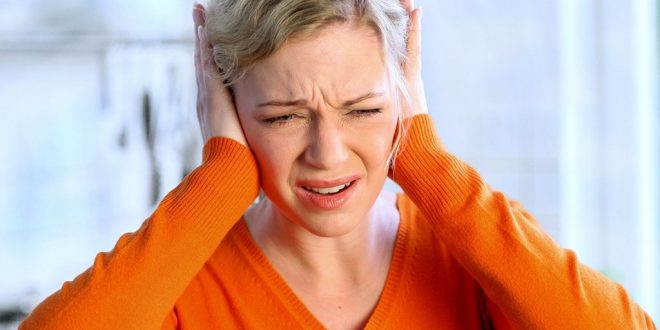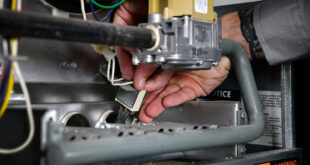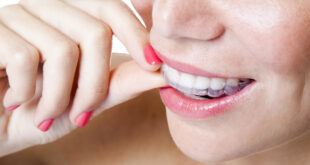Every day, thousands to dentists and dental hygienists are working around the clock to make sure that they can take care of their patients. From whirring drills to tooth files, there are a lot of devices that are used in a dentist’s office that not only produce many decibels or noise pressure but also operate at high frequency. Because of this, dentists run the risk of damaging their hearing every day if they do not protect their ears.
Hearing damage occurs when you are either exposed to many decibels all at once (for instance, a sudden explosion) or a large number of decibels over time. You are at risk for hearing damage if you are exposed to anything over 85 decibels for more than eight hours. As the number of decibels increases, the amount of time you can be exposed to the sound lowers.

Sandblasting is as loud as 96 decibels, which is enough noise pressure to cause damage over a period of a workday. Cutting on acrylic is as loud at 92 decibels. In fact, with the exception of a few instruments, most dental equipment is louder than 85 decibels. This constant exposure to these loud decibels runs the risk that a dentist will suffer from tinnitus or noise-induced hearing damage.
If dental professionals are exposed to over 90 decibels over a prolonged period of time, then they can damage their hearing. The Occupational and Safety Health Administration (OSHA) recommends that a person should be exposed no more than 90 decibels over an eight-hour period. In this case, dental professionals are certainly at risk because their hours of operations sometimes run for more than eight hours a day over the course of five to seven days. This puts them at risk for serious hearing damage.
Dentists run the risk of suffering from tinnitus or ringing in the ears. This ringing of the ears is a persistent sound that will hamper their ability to concentrate, have conversations with patients, or generally hear what is going on in the office. In addition to ruining concentration and affecting the ability to hear, tinnitus can also cause disorientation. Tinnitus can also be an indication of other health problems, so we recommend that you see a doctor if you are suffering from tinnitus.
Dentists also run the risk of suffering from noise-induced hearing loss. This happens when cilia, antennae-like structures in our inner ears, suffer damage. Unlike other areas of our body, such as skin, cilia do not regenerate, so once they are damaged, they are damaged permanently. Noise-induced hearing loss starts with the deterioration of the inner ear and progresses to ringing or buzzing in the ears. The hearing loss can eventually progress to having problems understanding speech. Once again, we highly recommended that you see a doctor if you suffer from these symptoms.
Dentists are not the only ones who are at risk of noise-induced hearing damage. Dental hygienists, and any other position in the office that will regularly use dental equipment for a sustained amount of time, also are at risk of noise-induced hearing damage. That means that both dentists and dental hygienists if they do not protect their ears, are both at risk for both tinnitus and noise-induced hearing damage.
Tinnitus and noise-induced hearing damage absolutely will interfere with a dental professional’s ability to do their job. Both forms of hearing damage will make it harder to perform their job and concentrate, harder to have discussions with clients and other office personnel, and thus harder to have a successful career. Fortunately, there are solutions on the market that will help with this problem.
There are two main solutions to this problem. If you already suffer from hearing damage of any sort, you can invest in hearing aids, which will amplify the sound in your ears for your damaged cilia to detect and pick up. Blue Angels Hearing is one of the top companies that offer digital rechargeable hearing aids for people who suffer with hearing problems. However, it should be noted that if the cilia are completely non-functional, you can also suffer from total hearing loss, and the hearing aids will not help. Thus, hearing aids are a reactive solution because you get them after your hearing has been compromised.

The other solution is to get earplugs. Earplugs can prevent hearing damage and preserve your hearing. The best dental earplugs offer protection from higher-pitched frequencies and do not interfere with having a normal conversation. The best dental earplugs will also have an indiscrete appearance and can be easily maintained and washed. The best dental earplugs also do not cause a clogged-up feeling in your head when you wear them and will not run this risk of an ear infection when you wear them. Because earplugs stop hearing damage before it starts, they are the proactive solution.
While hearing aids are more or less standard, the key to finding the best dental earplugs for you is a matter of trial and error. Some earplugs will offer too much noise canceling, while others will not offer enough. Some will be uncomfortable, and some will not. It is a matter of individual preference to find the best dental earplugs that are right for you. Whether using hearing aids or earplugs these methods are simply a must. Without either hearing aids or earplugs, their success at their career is at risk.
Every day, dentists and dental hygienists use loud machines to take care of their patients. These machines can cause hearing damage or even hearing loss. This damage can prevent them from having conversations with their patients, prevent them from being able to concentrate on treating their patient or will be generally annoying to them as they work. Ringing in the hears can last as a result of tinnitus, and noise-induced hearing damage can prevent them from having regular conversations. There are two solutions on the market, hearing aids and earplugs. Whether they choose the proactive option or the reactive option, we urge dentists and dental hygienists to get their hearing checked and get the treatment that’s right for them if they do have hearing damage. Their careers depend on it!
 Vermont Republic Second Vermont Republic
Vermont Republic Second Vermont Republic




